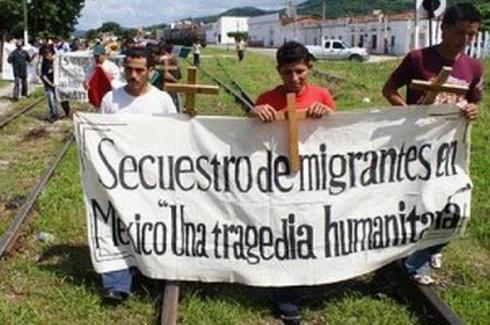The massacre of migrants in Camargo Tamaulipas
As long as there is no drastic change in the structural conditions, there will be no guarantee that migrants will have full respect for their physical integrity, dignity and life.
- Opinión

At the end of January and in a scene of horror, another massacre of migrants occurred in Camargo Tamaulipas. The migrants, apparently all of Guatemalan origin, were heading with a group of coyotes (human traffickers) to the northern border of Mexico to enter the United States (USA). During this journey, they were assassinated by just over a dozen state police officers (most likely in collusion with organized crime groups and in the possible context of struggles and tensions between criminal organizations in conflict). Due to the violence and fury of what happened, these events recall their antecedents, the massacres of San Fernando (also Tamaulipas in 2010 and 2011) and Cadereyta (in Nuevo León in 2012). Like the previous ones, the Camargo massacre has various causes, and not only refers to the actions of criminal groups. To understand these facts, at least three related processes must be taken into account, which expose the conditions of violence and precariousness of populations in cross-border mobility.
1) On the one hand, the causes that force migrants to flee from their places of origin. The migrants are people mainly from the northern triangle of Central America, and in this case Guatemalans, who go mainly to the United States, in search of a better present and future. These contexts of expulsion are related to historical and structural processes of generalized deficiencies and very precarious conditions of existence (the increase in poverty, the lack of job opportunities, insufficient and meager wages, added in certain regions to gang violence, organized crime and also domestic violence). These contexts have been produced, both by the forced implementation by the United States of neoliberal policies on Central America (which have increased inequality and misery), as well as by the endemic and historical corruption and incapacity of the governments of the countries of the region to satisfies the needs of their populations and the socio-environmental impacts of certain natural phenomena (such as hurricanes).
(2) On the other hand, and closely linked to US geopolitical pressure in Central America and Mexico, for decades the processes of criminalization of irregular migration by transit countries have been increasing more and more. Part of the violence and aggressions against migrants occurs at the current moment precisely because of the context of national and regional migration policies that not only do not ensure the rights and human security of migrants, but also generate legal frameworks and policies to "see" and "treat" them as "criminals", and not as what they really are: forced and highly precarious migrants. In this scenario, impunity and the lack of de facto exercise of the law in transit countries (in relation to the unrestricted respect of the physical integrity and dignity of any person / individual regardless of their nationality and citizenship), are the reasons that, for more than a decade, aggressions and crimes against migrants are generated, normalized, made invisible and not punished.
(3) Finally, because, for years now, various criminal organizations (gangs, criminal groups, local, national and regional drug trafficking cartels) have seen migrants (and their precarious mobility and lives) as a constant and important source of obtaining very easily accessible economic resources (through various strategies and actions, from robbery and extortion, to kidnapping, human trafficking, forced labor, human trafficking, among others). The actions of these criminal groups on migrants is fostered, both by environments of impunity and by the collusion of certain security forces and individuals from government institutions (which, de facto, function as members of said organizations), as well as by the high vulnerability and partial defenselessness in which the populations in movement and "irregularized" find themselves.
As long as there is no drastic change in the conditions of these three processes described (eradicate the historical-structural causes of migration, transit countries that guarantee respect for the rights of people on the move and the containment and punishment of criminal organizations), there will be no guarantee that migrants will have full respect for their physical integrity, dignity and life.
In memory of Mádelyn Estefanie García Ramírez, Bramdon David García Ramírez, Rubelsy Elías Tomás Isidro, Santa Cristina García Pérez, Anderson Marco Antulio Pablo Mauricio, Iván Gudiel Pablo Tomás, Osmar Neftalí Miranda Baltazar, Paola Damaris Zacarías Gabriel and Dora Amelia López Rafael, migrants murdered in the Camargo massacre, Tamaulipas, January, 2021.
Del mismo autor
- Forced internal displacement in Mexico and processes of violence 13/03/2022
- Labor struggles against precarious work and agribusiness exploitation 09/01/2022
- Detentions, deportations, and criminalization of migrants 29/11/2021
- México: detenciones, deportaciones y criminalización de los migrantes 15/11/2021
- Visibility of migrant voices and subjects 18/10/2021
- La decolonialidad y el abordaje de las movilidades humanas transfronterizas 01/10/2021
- Migrants, social organizations, and policies to control cross-border mobility 20/09/2021
- Decoloniality and sense of the production of social knowledge 06/09/2021
- Decolonialidad y sentido de la producción de conocimiento social 26/08/2021
- México: migrantes, organizaciones sociales y políticas del control de las movilidades transfronterizas 09/08/2021








